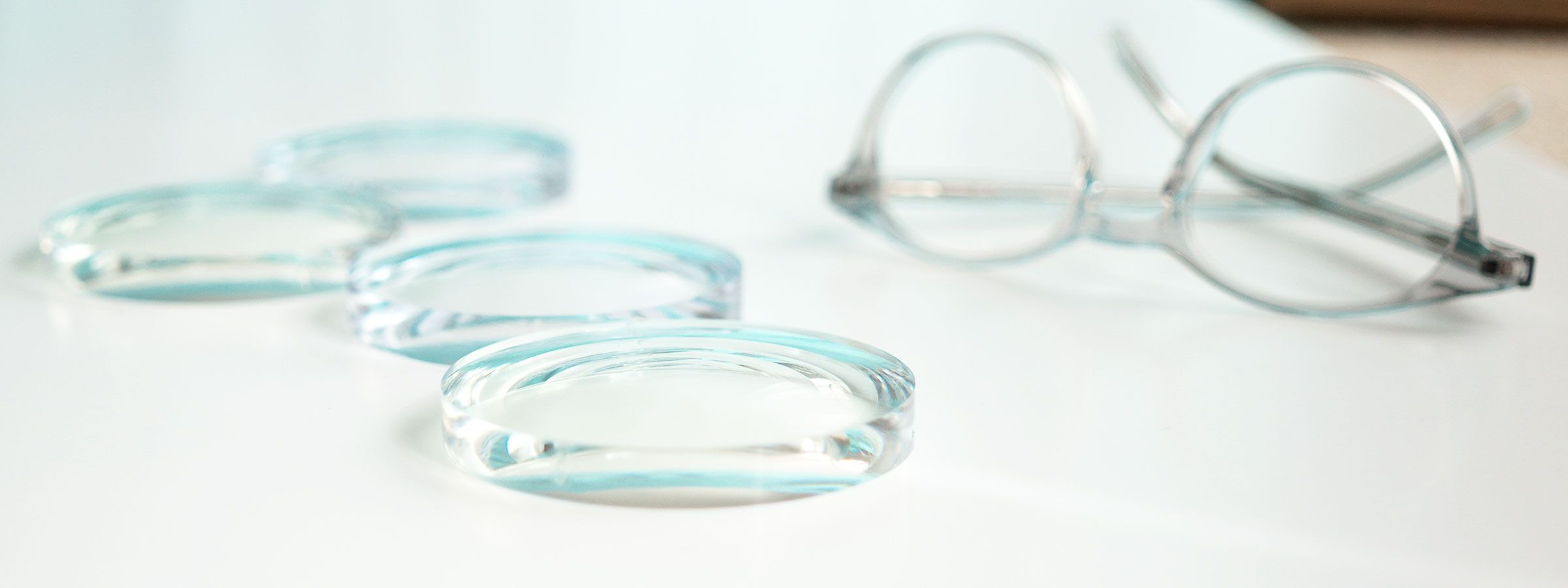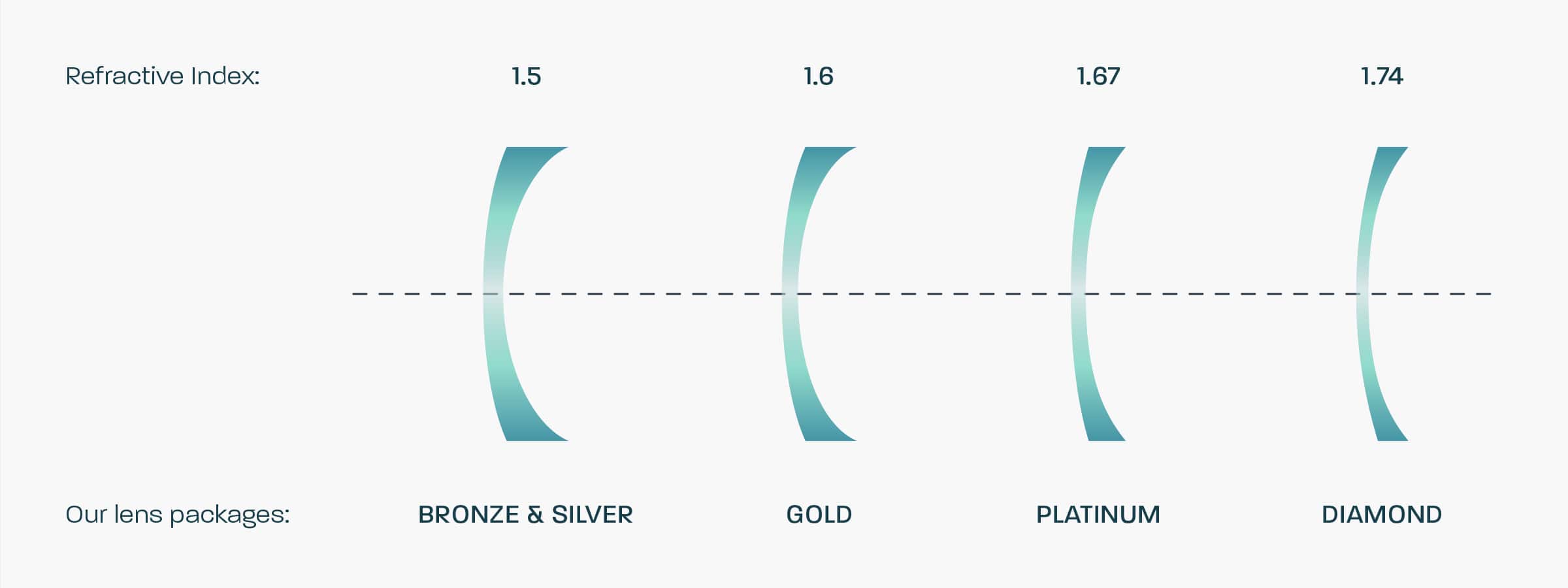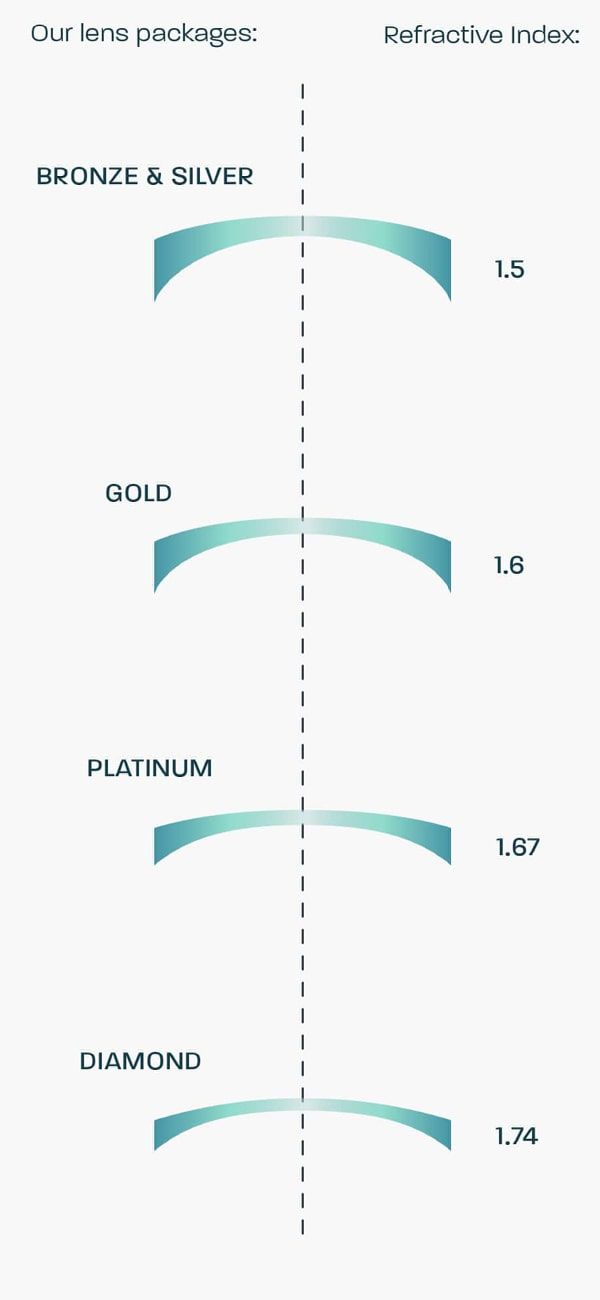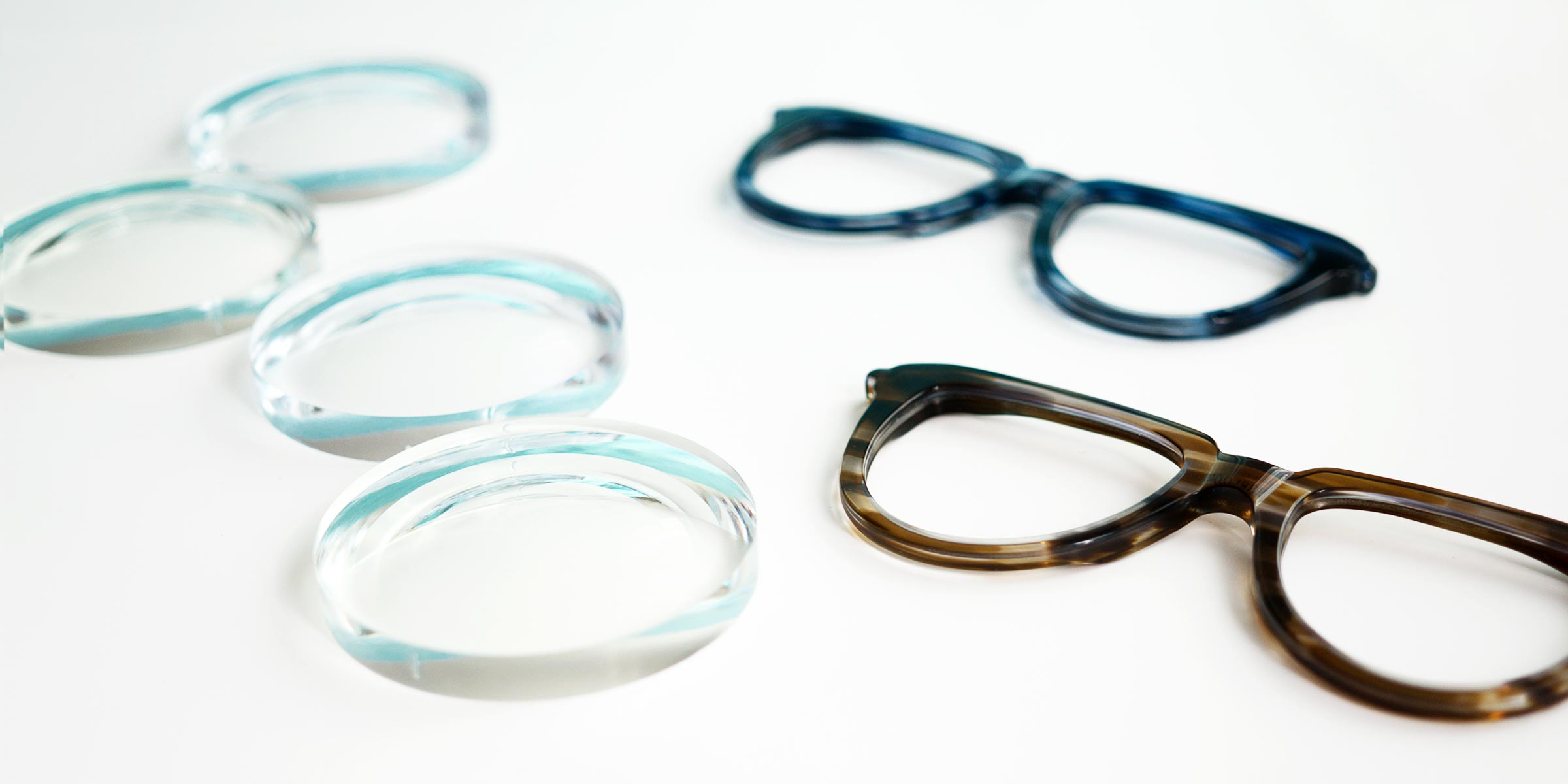Lens thickness: What to know
Learn more about refractive index and lens thickness


Lens thickness will depend on the strength of your prescription, your pupillary distance (PD), the size of the frame, and the lens material.
Refractive index
Lens materials are classified on their refractive index. This refractive index is the ratio of the speed of light when it travels through air to the speed of light when it passes through the lens material. It is an indication of how much light is bent as it travels through the lens. Light is refracted, or bent, at the front surface of the lens, then again as it exits the lens.
A denser material bends light more, so not as much material is needed to achieve the same refractive effect as a less dense material. Hence the lens can be made thinner, and also lighter.


The higher the refractive index, the more light is bent by the material and the thinner the lens can be for a given power. Air has a refractive index of 1, and water is 1.33. A standard index plastic spectacle lens’ refractive index is 1.5. A mid-index lens of refractive index 1.6, approximately 20% thinner than a standard lens. A high-index lens of refractive index 1.67 will be approx. 33% thinner, whereas a lens with a refractive index of 1.74 will be around 42% thinner.
Because higher refractive index lenses reflect about 50% more light that standard index lenses, they are always coated with a multi-anti-reflection coating that will reduce the amount of reflections from the lens surface to less than 1%. These coatings reduce glare from headlights at night too.
Find below the refractive index of our lens packages:
Bronze and Silver: 1.5
Gold: 1.6
Platinum: 1.67
Diamond: 1.74 (available on phone orders only)
What lens thickness should I choose?
If you’re moderately, or very short-sighted you’ll benefit from thinner lenses as the edge thickness of your lenses will be more visible.
Lenses with a refractive index of 1.6 are ideal for prescriptions where the – value of your SPH prescription is between -2.50 and -4.00. Between -4.00 and -6.00 we’d recommend a lens with a refractive index of 1.67, and any prescriptions over that a lens with a refractive index of 1.74 will be more suitable.
If your prescription is over -5.00 we’ll need an accurate measurement of the distance between your pupils, often referred to as the PD or pupillary lens distance.
Because lenses for long- and short-sightedness are different, there are different considerations for each.


If you’re quite short-sighted, we recommend the following to minimise the thickness of your lenses, even if you’re choosing thinner lenses.
- Think about a plastic-rimmed frame which will hide any edge thickness better than a metal-rimmed one.
- Try not to order a frame with a lens diameter of more than 50mm. Our Best Fit Machine will help you narrow your search.
If you’re fairly long-sighted, we recommend you consider these points in addition to choosing thinner lenses:
- Think about a plastic-rimmed frame which will hide any centre thickness better than a metal-rimmed one.
- Try not to order a frame with a lens diameter of more than 50mm. Our Best Fit Machine will help you narrow your search.
- Try to stay away from semi-rimless or rimless frames as the edge thickness of your lenses (the thinnest part) will need to be made thicker for them to be glazed in to the frame successfully. This will have a knock-on effect on the centre thickness, making the lenses look more pebbly.
- Order an anti-reflection coating to reduce troublesome reflections from the lens surfaces.
- If you’re not sure, please ask one of our helpful qualified dispensing opticians.
